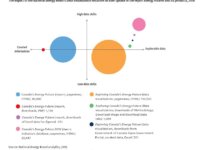The City of Austin launched Data Impact Visuals & Exploration (DIVE) to address low data literacy, limited accessibility, and lack of decision support tools. This project aims to empower diverse users with data skills, tools, and resources to make informed decisions. DIVE benefits community members, City staff, universities and funders. Innovative features include user-centric design, multiple components, a community-based approach and a long-term sustainability plan.
Innovation Tag Opengov: skills
MATEC is the educational project for teacher training and support that promotes an innovative teaching methodology to enhance the learning of mathematics through technology. It was created in response to the declining performance in mathematics, the low inclusion of technology in classroom practices and the need for new tools to personalise student learning and meet the challenge of diversity in the classroom.
The project reduces the digital divide and accessibility problems for people with special needs and simplifies technology. It is a layer of artificial intelligence (AL21) that facilitates navigation and assists in carrying out electronic procedures, together with the deployment of cyberkiosks that allow access to technology free of charge and Smart Centres to train citizens in digital skills. The Public Procurement of Innovation methodology is used in its implementation.
The Reciclocidades was implemented to strengthen community relationships and contribute to the generation of work and income, the reduction of social inequality, female empowerment and the longevity of natural resources. It offers solutions to problems and needs that affect society, mainly aimed at women in socially vulnerable situations, who are trained to transform solid waste into new products that can be sold. Its main objective is to generate work and income for socially vulnerable women…
The DYPA Career Days, organized by the Public Employment Service (DYPA) in Greece, fosters direct engagement between the business sector and jobseekers. This marks a significant departure for DYPA as these events are now systematically conducted, spanning the entire country. A key strength of DYPA’s Career Days lies in their comprehensive promotion of employment opportunities and the strategic engagement of interested individuals through a process characterized by simultaneous, adaptable, and…
The projects a collaborative development of a data governance model (DGM) for the CNFL resulting in the improvement of the provision of quality in public services through the use of data. This is an innovative solution developed collaboratively across units and teams.
Those who are now teenagers will be in charge of resolving complex problems in 2050, in particular those related to the climate crisis and its impact on cities. They will need to be equipped with soft skills to develop generosity, creativity or teamwork; unfortunately, traditional schools are not prepared for this task yet. The Mayor's office from Suba, Bogotá, in alliance with te Bogotá Lab iBO and with the World Bank, developed an experiment to test a gamified program that uses ICT to…
GovTech Poland has developed world's first challenge based procurement model where the authors of the best idea receive a full implementation contract without the need for an additional cumbersome tender. With the goal of opening procurement to all creative individuals, the model covers the process from identification to implementation. A pilot run, tested in both central and local institutions has increased SME participation in procurement processes by an average of 1600% (in a sample of 250)…
In 2016 the NEB launched the Data Visualization Initiative to face the challenge of producing usable and useful data to go beyond using new technologies to deliver better service to citizens. It created multiple products from the same information to expand public participation in the energy dialogue and enable evidence-based decision-making. These products include interactive data visualizations and other materials, such as high school lesson plans, as a new way to engage experts and nonexperts.
The Artech project invites artists, entrepreneurs, and developers to use public data as a "raw material" for works of art based on traditional arts or digital media. Being a well-known and respectable medium to broad audiences, we see art, as an original and fresh way to expose new audiences to the importance of open data and its relevance. This is the first time that a government agency in Israel has directly sponsored a creative and innovative experience of this kind.


